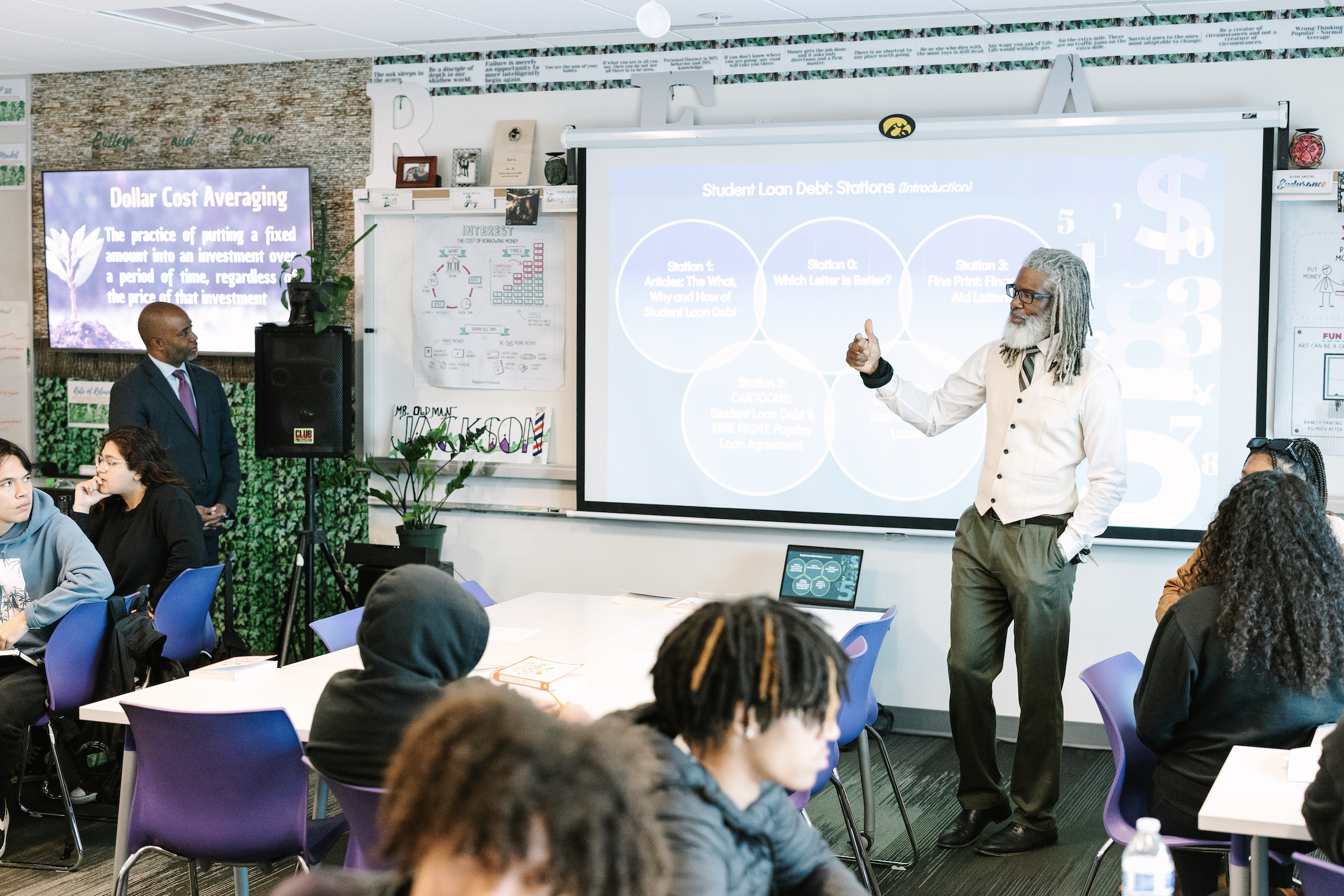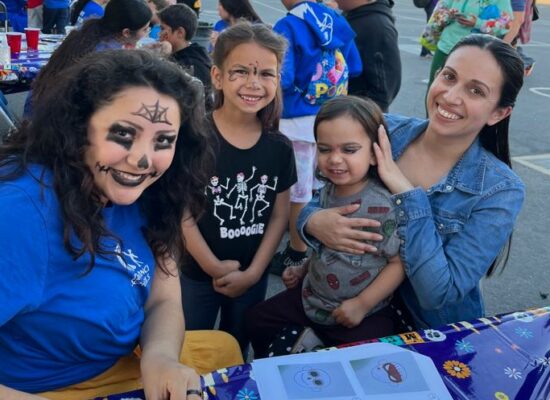
Empowering Da Vinci Students for a Lifetime of Success Through Financial Literacy Education
Financial literacy education is a powerful tool to help individuals of all ages and backgrounds make informed decisions about budgeting, investing, managing debt and accumulating wealth, contributing to improved financial well-being, less stress, and a higher quality of life.
Momentum is growing as more Americans than ever want to prioritize financial education. Currently, there are 25 states across the U.S. that require students to take a personal finance course before graduating from high school. This November, California voters will be asked to vote on the California Personal Finance Initiative to guarantee every CA high school student a stand-alone personal finance course as a high school graduation requirement.
In California, only 1% of students are currently required to take a financial literacy course, compared to 48% nationally. At Da Vinci Schools, every high school student receives financial literacy education as part of their core graduation requirements.
The entire 2nd semester of Mr. Chris Jackson’s College and Career Readiness class at Da Vinci Communications is devoted to financial literacy education. Using the Next Gen Personal Finance (NGPF) curriculum, 12th grade students are learning about budgeting, investing, how to read a financial aid award letter, how to minimize debt including student loan and credit card debt, retirement planning, how to leverage better credit scores to secure preferential borrowing rates, how to fill out a tax return, and much more so they can make wise financial decisions, build a secure future, and achieve their financial aspirations. Da Vinci Communications, Design and Science all use the NGPF curriculum. Additional financial literacy curriculum at Da Vinci includes Rock the Street, Wall Street (at DV Science), Bridging the Gap Enterprises (at DV Connect High), and Wescom Credit Union at RISE.
According to a recent report by NGPF and the consulting firm Tyton Partners, students who complete a one-semester course in personal finance can expect to see a lifetime benefit of roughly $100,000 per student that is multiplied across families and communities of future generations. Students who take personal finance courses also are more likely to get lower-cost loans and grants to pay for college and are less likely to rely on private loans or high-interest credit cards, according to a study for the National Endowment for Financial Education.
Using a blend of lectures, videos, real-world case studies, interactive classroom competitions, and group discussions, students in Mr. Jackson’s class engage in practical, hands-on activities where they apply the financial concepts they learn to real-life scenarios, fostering a deep understanding of personal finance principles.
David Ortiz, a senior in Mr. Jackson’s class, shared, “Jackson would always tell us that his class would be the most important class we ever took and I couldn’t agree more. Having the blessing to learn this information so young is so exciting to me as it felt as if I was given the opportunity to a different world. It makes me feel as if I have the power to be as successful as I want so that I can make my dreams a true reality. I have self assurance that I will be able to do more and accomplish more thanks to what I’ve learned in this class.”
Mr. Jackson is on a crusade to drive home the importance of gaining financial knowledge at a young age. He often shares his personal experiences with his students.
“In 1991, shortly after graduating from high school, I received a $200 graduation gift from my family. Just like many of my friends, I promptly spent that cash on a new pair of Jordans from Footlocker. While I appreciated the gift at the time, looking back, I realize there was a far more valuable gift that my high school could have given me – a financial literacy class,” he said.
A teacher, coach and philosopher, Mr. Jackson challenges his students to understand the psychology behind financial decision-making, and how behavioral factors and personal values influence spending, saving, and investing choices. These principles are taught within the context of identifying college and career goals that align with each student’s personal core values. He shares that small decisions made today can have a huge impact later in life. “I want to influence their children’s children.”
The semester culminates with each graduating senior opening up their own Roth IRA retirement account when they turn 18. An anonymous angel investor contributes funds each year so every student can open up an IRA account with $100. (Mr. Jackson recommends Fidelity Investments because there are no account fees and no minimum dollar amount required to open a brokerage account.) Already, three-quarters of Mr. Jackson’s students have opened a Roth IRA.
David has taken the lessons learned in financial literacy class to heart. He already has opened two brokerage accounts, invests $400 per month in an IRA (he has started two businesses of his own – furniture refurbishing and window washing), and established a financial investment club at DVC to help other students build their financial literacy just as Mr. Jackson has helped him.
“My goal is to tell people that making money isn’t hard. The hard part is changing your mentality from wasting money to using money. We currently have over 30 members in the club and regularly meet every other Wednesday,” David continued.
Mr. Jackson also seeks to impact Da Vinci families. He recently led a workshop for parents on how they can help their children have a debt-free college education without sacrificing their own future. He shared that families need to know how much they can afford in monthly college expenses and to not let emotions get in the way of making informed decisions.
Last April, State Superintendent of Public Instruction Tony Thurmond visited Mr. Jackson’s class and spoke directly with students as part of his effort to tour model schools and get input from students about making a personal finance course a high school graduation requirement. The NY Times and CNBC have highlighted Mr. Jackson’s class and Next Gen Personal Finance as model providers of personal finance curriculum.
Thank you, Mr. Jackson, for sharing your passion and wisdom with our entire community and for giving them a solid foundation in financial literacy.
Related Articles:
>> Teacher Talk with Christopher Jackson
>> You can put a price tag on the value of a personal finance education: $100,000
>> More States Now Require Financial Literacy Classes in High Schools
>> State Superintendent of Public Instruction Tony Thurmond Visits Da Vinci Schools



